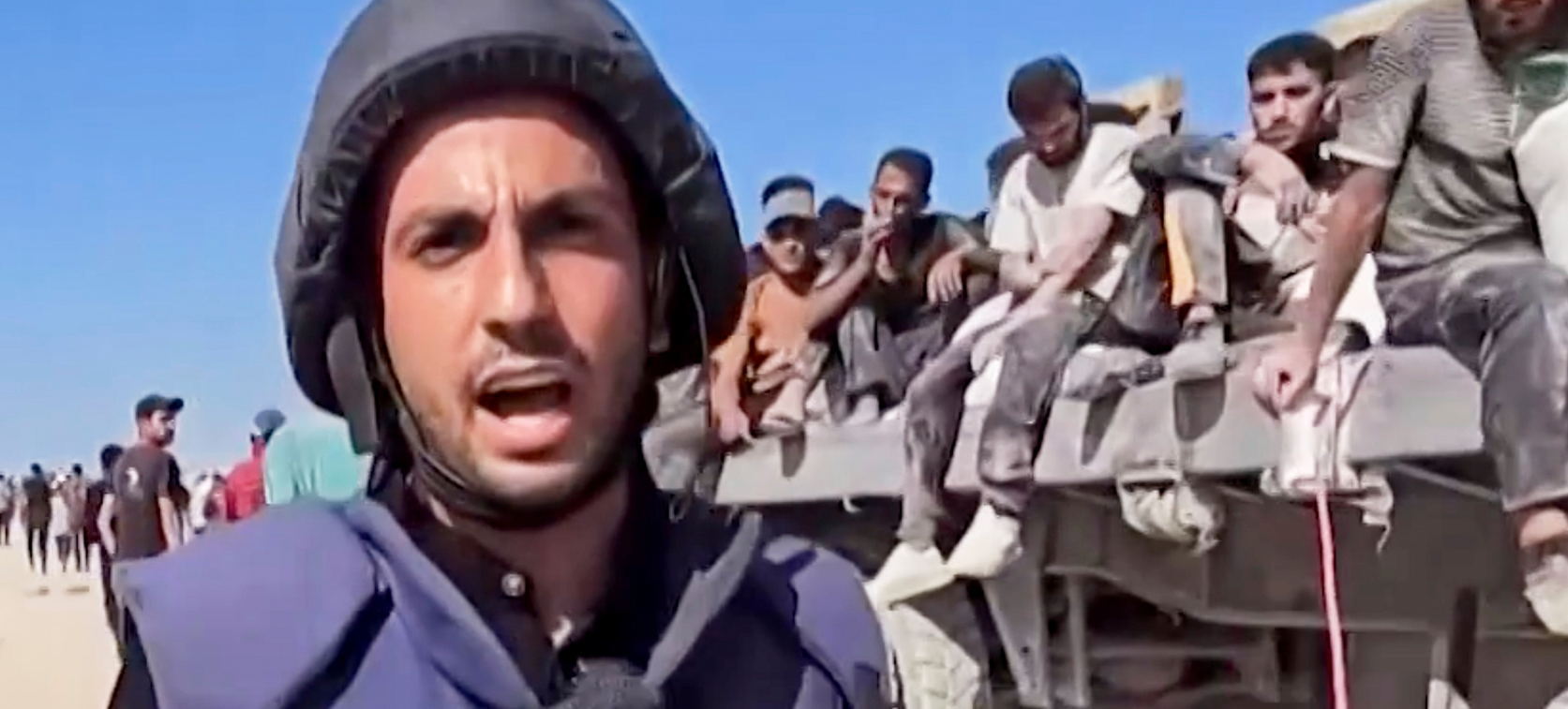Anas is not another statistic; his death is not another number. His martyrdom stands as a living testimony to the relentless struggle for liberation. While he now sits and drinks from Al-Kawthar, his legacy pulses through the veins of everyone standing on the right side of history—Muslim or not—urging them to keep the resistance against occupation alive until the last man on earth. Offered the chance to move to Qatar for a better life, Anas refused—a choice some might call insane, but one that only those who truly understand their meeting with their Creator can comprehend.
They thought killing him would mute his voice.
Instead, they gave it wings.
Anas Jamal Al-Sharif — journalist, father, son, husband — did not leave behind property deeds, numbered bank accounts, or golden heirlooms. His final bequest was not measured in capital or possessions. It was a living thing: a voice, a cause, and a call that even death could not quiet.
In the narrow alleys of Jabalia refugee camp, Anas grew up under the shadow of exile, with the memory of Asqalan — the home his family could not return to — alive in his heart. He wrote his will months before his death, knowing his work placed him in the crosshairs. And he began with the quiet certainty of a man who had already made peace with his Creator: If you are reading these words, Israel has succeeded in killing me.
But there is no fear in his writing, only trust — trust in God’s decree and in the people who would carry on what he could no longer do. He does not pass on land titles or locked safes. He passes on Palestine. He entrusts its children, its soil, its wounded dignity, and the family he can no longer protect.
Most wills are cold legal instruments, catalogues of things to be divided. His is a warm hand extended across time — to his daughter Sham, “the light of my eyes,” to his son Salah, to the mother whose prayers were his fortress, to the wife who stood unbending “like the trunk of an olive tree.” It is both a farewell and a map, pointing toward liberation.
History is full of the last words of rulers, presidents, and generals — men who spent their lives amassing power, only to use their final breaths to secure their wealth and titles. Their wills gather dust in archives; their legacies fade when their names are no longer carved into palaces.
Anas’s will is different. It holds nothing that moth or rust can touch. It is made of truth told “without distortion or falsification,” of a father’s tenderness, of the unshakable belief that chains and borders are no match for a people’s will to be free.
And so the paradox is complete: in seeking to erase his voice, they have written it into history. His will is now read in languages he never spoke, carried to places his feet never touched. Strangers now carry his words as if they were their own.
Rulers die and their empires shrink to the size of their tombs. Anas died and his legacy expanded to the size of the world.
Despite the announcements from Israeli leaders declaring the takeover of all of Gaza, Anas’s will has already assured the world that this struggle is not measured in square kilometres or in the number of tanks on a street. It is measured in the hearts that refuse to yield, in the hands that will keep building, and in the voices that will not be silenced.
His testament is proof that the cause is larger than the man, larger than the moment, and larger than the siege itself. His words have outlived the strike that ended his life, and they will outlive any declaration of conquest.
For as long as his will is read, for as long as his voice is carried, Gaza will not be a conquered land in the minds of its rightful people. It will be an occupied home awaiting return. And return it shall — not because of the strength of arms alone, but because the human spirit, once entrusted with justice, cannot be bought, broken, or buried.
Anas’s will does more than speak for the dead — it keeps the living moving forward. It tells the occupier that the story is not over. It tells the world that the day will come when Gaza will once again breathe in liberation, in dignity, and in the embrace of its rightful people.
In killing him, they thought they had closed the chapter.
Instead, they opened the book.
The chapter may have closed on his life,
but his testament flows like Al-Kawthar—
everlasting, pure, and a promise that liberation will come.
Need Help?
-
[email protected]
-
Follow us on Instagram
-
Follow us on TikTok
